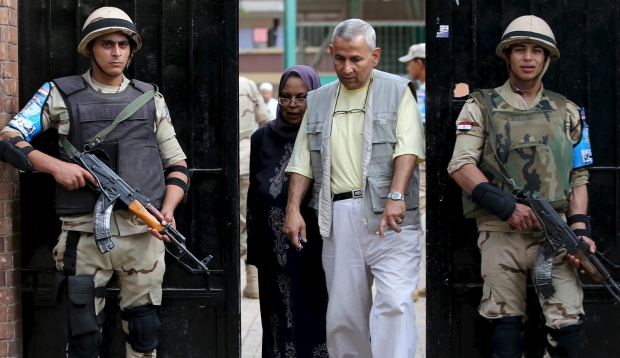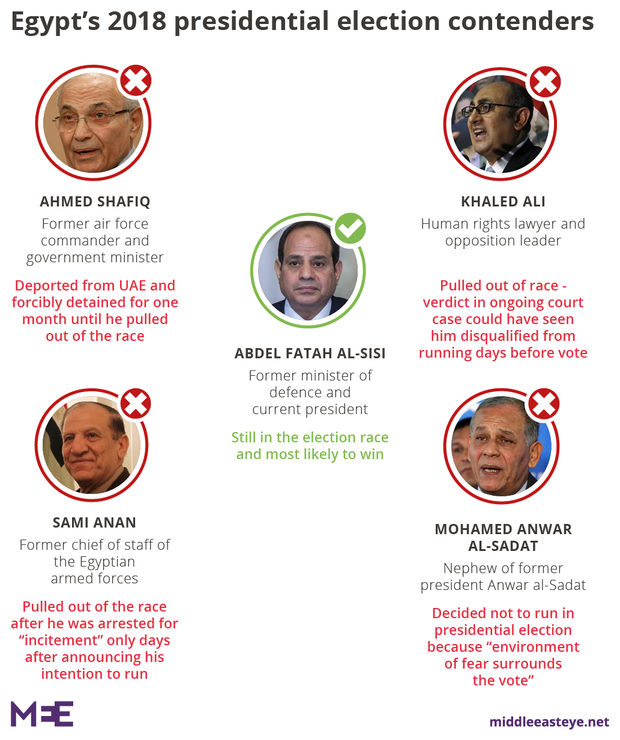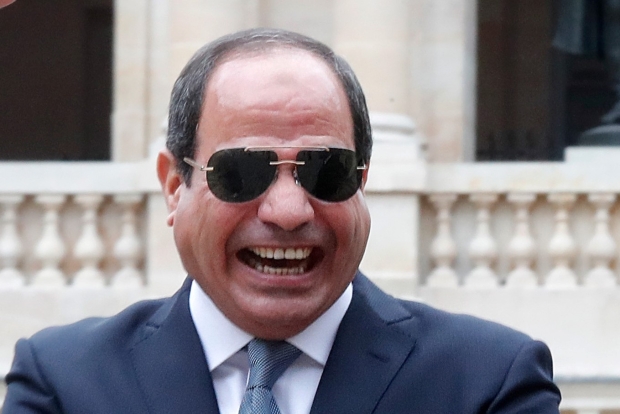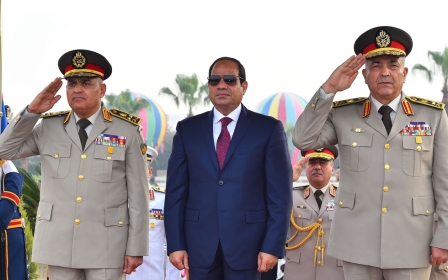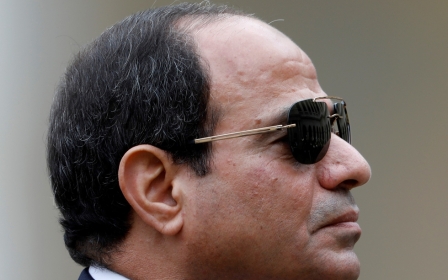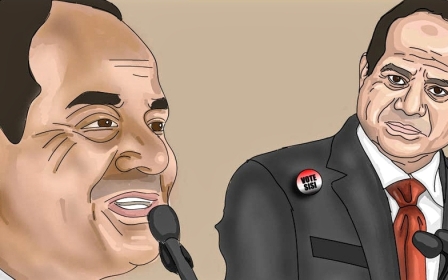Egypt's election drama: Sisi's moment of hollow triumph won't last
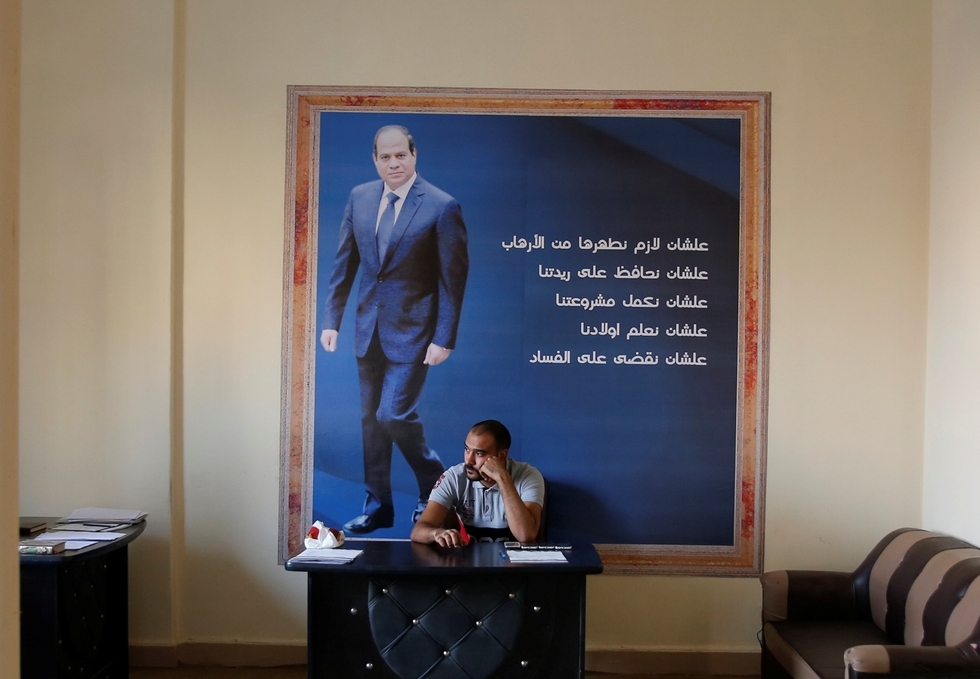
With spectacular, record-breaking precision, Egypt's ruling dictatorship upended a would-be multi-candidate presidential election in just under 18 days of dramatic arrests, court martials and smear campaigns.
Skepticism aside about the validity of holding this election while the country is under emergency law, its prisons bloated with over 60,000 political detainees and its independent media either blocked, intimidated or behind bars, when the National Election Commission (NEC) announced the official timeline for the polls on 8 January, it seemed to be stirring up stagnant waters.
A foregone conclusion
There was certainly no doubt about the expected results of this race. It was a foregone conclusion that incumbent Abdel Fattah al-Sisi was going to retain his position as autocrat-in-chief. Still, the prospect of going through the motions was something some people looked forward to, perhaps as a form of entertainment or a chance to convince themselves that they still have some agency or that indeed, as the NEC motto promises, their "voice will be heard".
For weeks, there was talk of a possible bid by former general and 2012 presidential election runner-up Ahmed Shafiq, a holdover from the ousted Mubarak regime.
It had become apparent beyond a shadow of a doubt that the regime was not even interested in the charade, nor in any peaceful transfer of power
Another bid by young lawyer and human rights activist Khaled Ali sparked a flurry of debate among the "revolutionaries" about whether to boycott the race or to partake in a flawed election for its "symbolic" value and the chance to expose to the world that all is not well in the Gift of the Nile.
Even before the NEC declared the election dates, Ali had announced his bid, despite facing a court verdict that would have disqualified him before voting day anyway. Ali is appealing the ruling.
Shafiq, too, made his announcement from self-imposed exile in the United Arab Emirates and yet another little-known military officer Ahmed Konsowa declared his intention to face off against his boss in a video that made the rounds on social media.
What happened next was phenomenal in its barefaced affront to the very basic principles of a democratic process, or at the very least, the appearance of one. Konsowa was arrested, court-martialled and handed a six-year prison term for "violating military code and publishing a video in which he espoused political views".
It didn't matter that he had been fighting multiple court cases to resign from his army position for over three years. Shafiq was deported to Egypt from the UAE and, after being held at a luxury hotel in Cairo for days, revoked his decision to run.
The unexpected
Then just as we were all getting comfortable with the familiar stories of security harassment and intimidation of Ali's supporters, it emerged that Mohamed Anwar Sadat, the nephew of former president Anwar Sadat, was trying to get his foot in the door too.
He was eventually forced to quit before ever starting, declaring that the pressure was so intense that no banquet hall would agree to host his news conference and that he feared for the safety of his campaign members.
Then the unexpected happened.
Within 24 hours, the former Armed Forces chief of staff, Sami Anan, announced his bid for the presidency in a five-minute video posted on his official Facebook and YouTube pages.
Civilian vice presidents?
He said his candidacy comes amid a number of challenges, including terrorism, a deterioration of living standards, as well as the failure of the Egyptian state to deal with land, water and national resources issues. Anan emphasised the need for separation of powers and the rule of law, and bemoaned civil society's inability to play its role.
The former general, who was forced into retirement by then president Mohamed Morsi in August 2012, himself ousted in a military coup a year later, appeared in civilian attire.
He added that he would submit his candidacy documents to the NEC after completing all requirements as a former army chief of staff in accordance with military law, urging civilian and military state institutions to refrain from exercising unconstitutional bias toward a president who might "leave his chair in a few months".
Theories and counter-theories have long abounded about the animosity between Sisi and Anan but now, and for the first time, they have aired their dirty laundry in public
Perhaps the most significant part of the speech, one which blindsided even the most virulent opponents of military rule, of which Anan is merely a new iteration, was the fact that he decided to appoint a team of two civilian vice presidents.
He named Hisham Geneina as his would-be vice president for human rights and transparency. Geneina is the embattled former head of Egypt's corruption watchdog, the Central Auditing Authority (CAA), who, in a historic precedent in 2016, was practically removed from office by presidential decree and later slapped with a one-year suspended sentence for "disseminating false news" during a massive corruption probe.
Anan also named as vice president for a revolution in knowledge and as his official spokesperson Cairo University's political science professor Hazem Hosny.
With the adoption of the 2014 constitution, as with its 2012 predecessor, the position of vice-president was abolished. So his announcement rendered Anan's intervention and language the potency of a long-overdue adrenalin shot needed for a body politic that had flat-lined for years, but wasn't quite dead.Yet before the ink dried on pundits' column inches and TV hosts were ready to charge in with their smear campaigns, Anan was arrested in his car less than two days later.
No peaceful transfer of power
In an official televised statement, the Armed Forces said that his bid for office without permission from the military leadership aimed to incite a rift between the Armed Forces and the public.
The statement also accused Anan of forging his end-of-service documents, claiming that the septuagenarian was still a military reserve officer and that they had the papers to prove it. He is currently being held at an undisclosed location with no access to a lawyer or to his family.
The fact that Sisi's 2014 bid had followed the exact same steps and that he even made his announcement in full military regalia, seems to have dropped out of the archive of selective memory of the Armed Forces altogether.
Just one day after that, Ali withdrew from the "race" as it had become apparent beyond a shadow of a doubt that the regime was not even interested in the charade, nor in any peaceful transfer of power.
The bizarre turn of events didn't stop there. Two days later, Geneina was reportedly assaulted as he was leaving his home.
At the police station where he filed a complaint, he was denied treatment, as the story quickly mutated into an all-too-familiar "road accident" fictionalised version where Geneina hit a man and tried to flee but was tackled and dragged to the precinct by a "poor and marginalised" indignant mob.
Theories and counter-theories have long abounded about the animosity between Sisi and Anan but now, and for the first time, they have aired their dirty laundry in public. Sisi appeared incensed at a public rally, vowing to stop the "corrupt" from coming anywhere near the presidential seat in a clear reference to Anan.
But if he knew that Anan was corrupt all along, why didn't he have him investigated, arrested, sequestered, and assets frozen as he so effortlessly did with hundreds of innocent families?
The emperor's new clothes
These are the actions of an emperor in his new clothes who suddenly realises that he's as naked as the day he was born.
Sisi can vote for himself at a referendum in March, or allow this fiasco to continue in a role-play against the new kid on the block, Mousa Mostafa Mousa, who leads the al-Ghad Party and was clearly "approached" to fulfil his national duty of legitimising this so-called election.
Despite that, he was miraculously able to meet the application deadline on Monday with a landslide endorsement of 47,000 pledges (almost double the required number) and the backing of 27 MPs.
The last-minute bid by anyone was necessary because otherwise five percent of all eligible voters will have to turn up at a referendum and vote yes for Sisi, a risk he cannot possibly afford to take just to keep up appearances.
Ironically, all this drama unfolded on the eve of the seventh anniversary of the 25 January uprisings. This is a piercing reminder of our collective failure to see this revolution to the end, to come together as one voice against military dictatorship.
But it is also a reminder of a very similar moment in recent history when figureheads of an arrogant ruling National Democratic Party snubbed the opposition following the 2010 parliamentary elections, sarcastically urging them to "have fun on the losers' side".
Less than 40 days after the NDP's "sweeping victory" at the polls, their headquarters in downtown Cairo were burnt to the ground and, 18 days later, history was made on 25 January 2011.
- Rania Al Malky is the former editor-in-chief of Daily News Egypt (2006-2012), which was the local publishing partner of the International Herald Tribune. She is currently a freelance contributor for various publications.
The views expressed in this article belong to the author and do not necessarily reflect the editorial policy of Middle East Eye
Photo: A volunteer and supporter of Egyptian President Abdel Fattah al-Sisi waits approval to fill in a form of the campaign titled, "Alashan Tabneeha”"(So You Can Build It), that demands al-Sisi to run in the next presidential election, in Cairo, Egypt, 17 October 2017 (Reuters)
New MEE newsletter: Jerusalem Dispatch
Sign up to get the latest insights and analysis on Israel-Palestine, alongside Turkey Unpacked and other MEE newsletters
Middle East Eye delivers independent and unrivalled coverage and analysis of the Middle East, North Africa and beyond. To learn more about republishing this content and the associated fees, please fill out this form. More about MEE can be found here.



